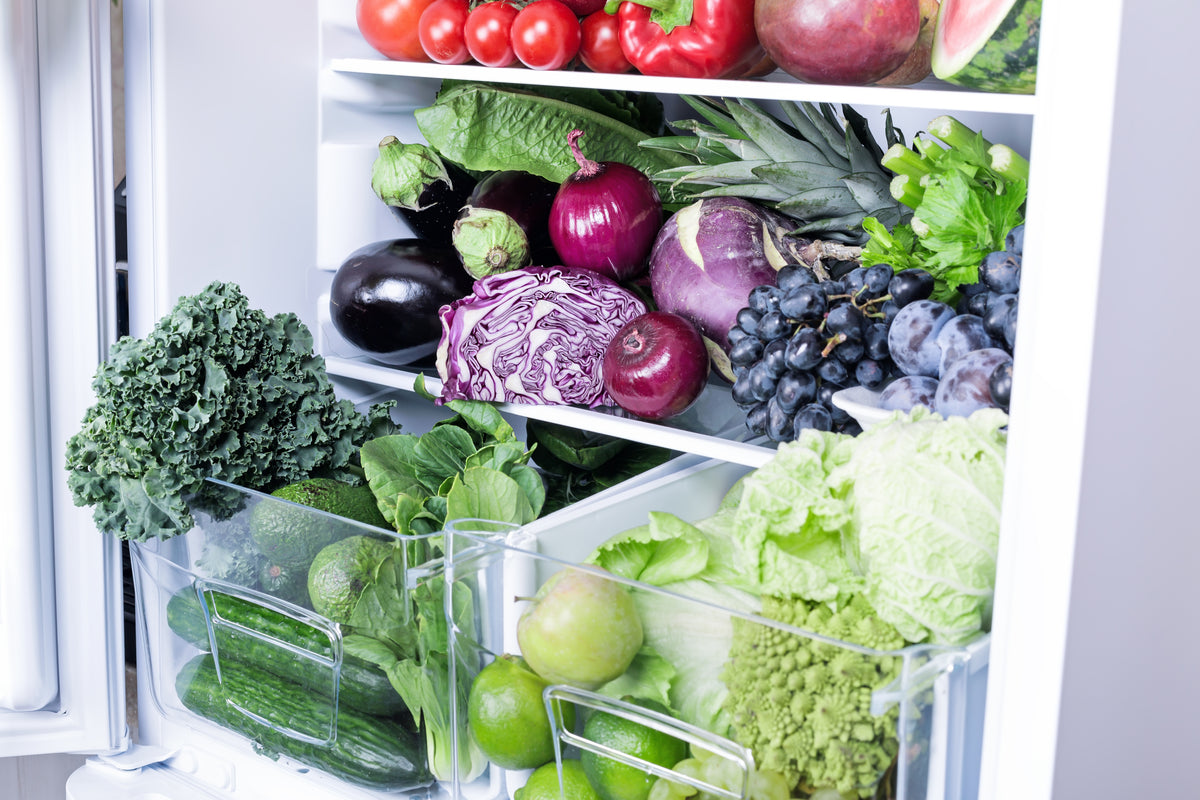
Quick Take
When you're starting a plant-based diet you may find you're purchasing way more produce than you're used to. Tired of buying fresh produce only to have it wither and die in the back of your fridge in just a few days? Here's how to prep your produce so it stays fresh in the fridge all week long.
Before We Begin: Make Going Plant-Based Easy with MamaSezz Ready-Made Meals!
Stock your fridge with ready-made and delicious plant-based meals, delivered to your door fresh! Make going vegan easy with the MamaSezz Get Me Started Bundle here.
On This Page
How to Prep and Store Your Produce So It Lasts All Week
Not All Produce Likes Cold: Don't Put These in the Fridge
Preventing Food Waste at Home
Key Takeaways
How to Prep and Store Your Greens So They Last All Week
If you are tired of seeing your fruits and vegetables go limp after a day or two and hate throwing food away, follow the instructions below to extend the life of your produce and minimize waste in your kitchen.
Lettuce

Always buy fresh and brightly green lettuce without any spoiled leaves. Tear the leaves apart and immerse them in a bowl with clean water and vinegar. Rinse the leaves, and let them dry – use a kitchen towel if you'd like. Once they are dry, place the leaves on folded kitchen paper, and then transfer in a food storage bag. Clean, dry lettuce leaves can be stored in the refrigerator for several days.
Pro tip: Use the outer leaves first, as the younger, fresher lettuce heart leaves are more resilient.
Broccoli, Cauliflower, Cabbage

These winter veggies love cold! Put them in individual food storage bags in the refrigerator, but first make a few holes in the bags so that they can breathe. The broccoli will be fresh and alive for a week, the cauliflower for about ten days, and the cabbage for more than two weeks.
Herbs

To extend the life of your favorite herbs (dill, parsley, celery, arugula, etc.), wrap them in paper towels, place in a zip lock bag, and store in the refrigerator. The paper will absorb the moisture that would otherwise spoil your greens.
Avocados

While avocados need to be kept in room temperature until they ripen, they can then be transferred in the refrigerator in a food storage bag, where they can be kept for 3-4 days. No more rushing to consume your avocados before they go bad!
Not All Produce Likes Cold
While your first move coming back from the store might be to transfer all the fruits and vegetables you bought into the refrigerator, keep in mind that some are not fond of the cold, and by putting them in the fridge you actually reduce their shelf life!
Always keep the following fruits and veggies outside of the refrigerator:
- Bananas
- Tomatoes
- Cucumbers
- Eggplants
- Peppers
- Potatoes (preferably in a dark dry place and away from onions!)
- Onions (preferable in a mesh bag in a dark dry place and away from potatoes!)
- Garlic
Preventing Food Waste at Home
Starting a plant-based diet can be a great way to improve your health and life – but it can also be wasteful if you're new to grocery shopping on a WFPB diet.
The best way to prevent waste and sad-looking produce is to only buy as much as you will realistically use during the week. Even better, make a weekly vegan meal plan and grocery list based on your plan. You may need to visit the store twice per week to buy fresh vegetables and fruits and prevent ending up with a refrigerator packed full of spoiled food.
You can also learn how to use the whole veggie!
Key Takeaways
- You can extend the life of your produce by properly prepping and storing!
- Not all produce thrives in the cold: keep bananas, tomatoes, cucumbers, eggplants, peppers, potatoes, onions, and garlic out of the fridge!
- Buy only as much as you need to prevent food waste
**
Rafaela Michailidou is a Vegan Lifestyle Coach, and a freelance health and wellness content writer, with a Plant-Based Nutrition Certificate from the T. Colin Campbell Center for Nutrition Studies.

